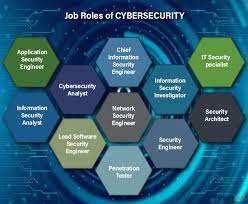What is cybersecurity?
Cybersecurity is the protection of internet-connected systems such as hardware, software and data from cyberthreats. The practice is used by individuals and enterprises to protect against unauthorized access to data centers and other computerized systems.
Why is cybersecurity important?
With an increasing number of users, devices and programs in the modern enterprise, combined with the increased deluge of data -- much of which is sensitive or confidential -- the importance of cybersecurity continues to grow. The growing volume and sophistication of cyber attackers and attack techniques compound the problem even further.
What are the elements of cybersecurity and how does it work?
The cybersecurity field can be broken down into several different sections, the coordination of which within the organization is crucial to the success of a cybersecurity program. These sections include the following:
Maintaining cybersecurity in a constantly evolving threat landscape is a challenge for all organizations. Traditional reactive approaches, in which resources were put toward protecting systems against the biggest known threats, while lesser known threats were undefended, is no longer a sufficient tactic. To keep up with changing security risks, a more proactive and adaptive approach is necessary. Several key cybersecurity advisory organizations offer guidance. For example, the National Institute of Standards and Technology (NIST) recommends adopting continuous monitoring and real-time assessments as part of a risk assessment framework to defend against known and unknown threats.
What are the benefits of cybersecurity?
The benefits of implementing and maintaining cybersecurity practices include:
- Business protection against cyberattacks and data breaches.
- Protection for data and networks.
- Prevention of unauthorized user access.
- Improved recovery time after a breach.
- Protection for end users and endpoint devices.
- Regulatory compliance.
- Business continuity.
- Improved confidence in the company's reputation and trust for developers, partners, customers, stakeholders and employees.







